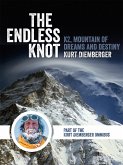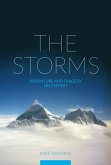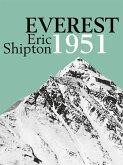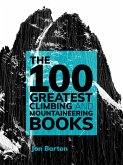In 1982, following the relaxation of access restrictions to Tibet, six climbers set off for the Himalaya to explore the little-known Shishapangma massif in Tibet. Dealing with a chaotic build-up and bureaucratic obstacles so huge they verged on comical, the mountaineers gained access to Shishapangma's unclimbed South-West Face where Doug Scott, Alex MacIntyre and Roger Baxter-Jones made one of the most audacious and stylish Himalayan climbs ever.
First published in 1984 as The Shishapangma Expedition, Shishapangma won the first ever Boardman Tasker Prize for Mountain Literature. Told through a series of diary-style entries from all the climbers involved, Shishapangma reveals the difficult nature of Himalayan decision-making, mountaineering tacti and climbing relationships. Tense and candid, the six writers see every event differently, reacting in different ways and pulling no punches in their opinions of the other mountaineers - quite literally at one point. Nonetheless, the climbers, at the peak of their considerable powers and experience, completed an extremely committing enterprise. The example set by their fine climb survives and several new routes (all done in alpine style) have now been added to this magnificent face.
For well-trained climbers, such ascents are fast and efficient, but the consequences of error, misjudgement or bad luck can be terminal and, sadly, soon afterwards two of the participants were struck down in mountaineering accidents - MacIntyre hit by stonefall on Annapurna's South Face and Baxter-Jones being caught by an ice avalanche on the Aiguille du Triolet. In addition their support climber, Nick Prescott, died in a Chamonix hospital from an altitude-induced ailment. Shishapangma is a gripping first-hand account of the intense reality of high-altitiude alpinism.
First published in 1984 as The Shishapangma Expedition, Shishapangma won the first ever Boardman Tasker Prize for Mountain Literature. Told through a series of diary-style entries from all the climbers involved, Shishapangma reveals the difficult nature of Himalayan decision-making, mountaineering tacti and climbing relationships. Tense and candid, the six writers see every event differently, reacting in different ways and pulling no punches in their opinions of the other mountaineers - quite literally at one point. Nonetheless, the climbers, at the peak of their considerable powers and experience, completed an extremely committing enterprise. The example set by their fine climb survives and several new routes (all done in alpine style) have now been added to this magnificent face.
For well-trained climbers, such ascents are fast and efficient, but the consequences of error, misjudgement or bad luck can be terminal and, sadly, soon afterwards two of the participants were struck down in mountaineering accidents - MacIntyre hit by stonefall on Annapurna's South Face and Baxter-Jones being caught by an ice avalanche on the Aiguille du Triolet. In addition their support climber, Nick Prescott, died in a Chamonix hospital from an altitude-induced ailment. Shishapangma is a gripping first-hand account of the intense reality of high-altitiude alpinism.
Dieser Download kann aus rechtlichen Gründen nur mit Rechnungsadresse in A, B, BG, CY, CZ, D, DK, EW, E, FIN, F, GR, H, IRL, I, LT, L, LR, M, NL, PL, P, R, S, SLO, SK ausgeliefert werden.









